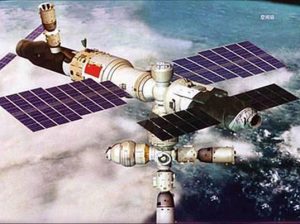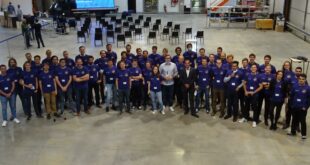
China has announced that it intends to launch the core module of its space station by 2018, with the aim of having the manned space-based facility operational by around 2022.
A spokesman for the China Aerospace Science and Technology Corporation, Mr. Wang Zhongyang, told Xinhua News Agency that the core module for the Chinese space station is to be called Tianhe-1, which means ‘galaxy’ or ‘Milky Way’ in Mandarin.
Mr. Wang went on to say that “Two space labs will be launched later and dock with the core module, Tianhe-1. The construction of the space station is expected to finish in 2022.”
Further, Mr. Wang pointed out that the International Space Station, operated by a consortium of countries that include the United States, Russia, Japan, the European Space Agency, and Canada, is set to retire in 2024, and this will mean that the Chinese will maintain the only operational space station thereafter.
The space station announcement from Beijing coincides with President Xi Jinping’s call for China to become a world-leading space power, marking China’s Space Day on 24 April 2016.
President Jinping said that space exploration is important to China, declaring that, “In establishing Space Day, we are commemorating history, passing on the spirit, and galvanising popular enthusiasm for science, exploration of the unknown and innovation, particularly among young people.”
With the announcement of the core space station module launch in 2018, Chinese officials have also called for the United States to cooperate with it in manned space exploration.
Yang Liwei, China’s first astronaut, said, “China will not rule out cooperating with any country, and that includes the United States. The future of space exploration lies in international cooperation. It’s true for us, and for the United States too.”
The chief engineer of China’s manned space programme, Zhou Jianping, struck a similar note when he said, “It is well understood that the United States is a global leader in space technology. But China is no less ambitious in contributing to human development. Cooperation between major space players will be conducive to the development of all mankind,”
At present the US does not cooperate with China in space due to restrictions placed on the American space agency, NASA, by the White House and the US Congress, though as Zhou Jianping notes, “Many American astronauts and scientists that I have met said they would like to work with us, if given the freedom of choice.”
Other countries, however, such as Russia, a number of European countries, and Iran are keen to cooperate with China in human spaceflight, to include its proposed space station.
Iran has been in discussions with Chinese space officials for several years about collaborating on its manned spaceflight programme, and Tehran has also stated that it wishes to put an Iranian on the Moon by 2025. The majority of the world’s space experts, however, question Iran’s ability to achieve this without the help of a major space power like China or Russia.
 SpaceWatch.Global An independent perspective on space
SpaceWatch.Global An independent perspective on space

